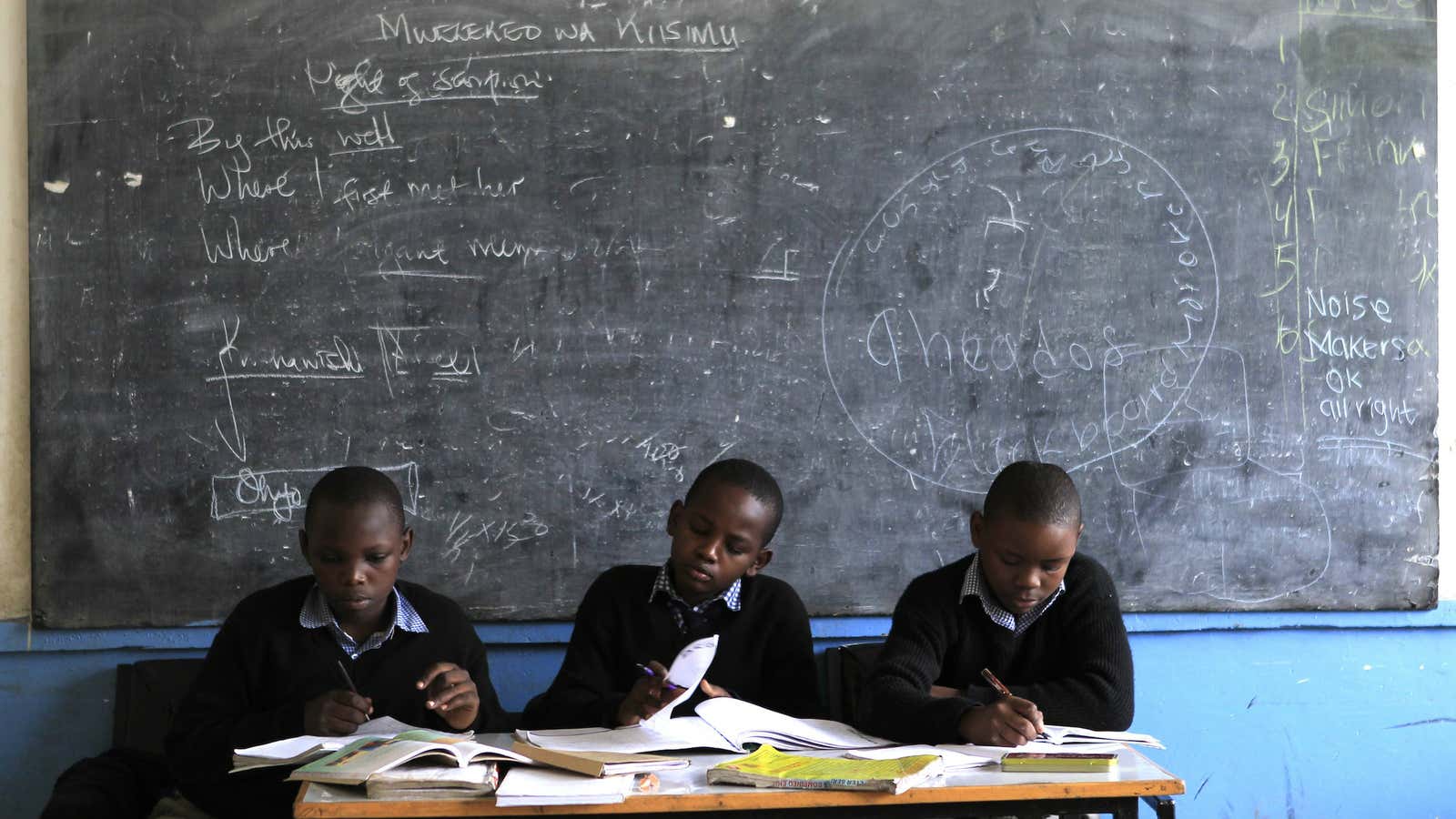An 18-year battle between Kenya’s government and its largest teachers’ union is coming to a head. After three weeks of strikes and school closures, president Uhuru Kenyatta refused yesterday (Sept. 20) to boost teachers’ salaries, despite a court order to raise them by 50%. Protests are planned in Nairobi throughout the week.
The Kenya National Union of Teachers (KNUT) says its strike “will not relent” until the pay increases it claims the government promised in 1997 are implemented. Teachers have defied orders that they report to work today or else have their names struck from the public payroll list. Meanwhile, private schools are holding classes despite government orders for all schools to close to guard against students being “left idle under the care of very few teachers.”
Around 44% of teachers in Kenya make between 16,692 and 24,662 shillings a month ($158 and $234), according to the Institute for Economic Affairs in Nairobi. Over the past seven years, there have been at least eight strikes that have disrupted schools.
https://atlas.qz.com/charts/VJrphauA
Kenyatta says that Kenyan teachers receive the third-highest pay in Africa, after Morocco and South Africa. “No one can reasonably complain that the teachers have been left behind,” he claims. Advocates for the teachers say that this doesn’t take into account how overworked Kenyan teachers are—in primary schools, pupils outnumber teachers by 50 to 1; in secondary schools, it’s 29 to 1.
The fight over teachers’ pay has also become a proxy for broader anger over the state of Kenya’s public finances. One reason why teachers’ salary demands can’t be met, according to the president, is that it would increase the country’s already high bill for public servants. Public wages account for just over half of government spending, compared with a third in middle-income countries of similar size, according to Kenyatta.
In 2003, primary school in Kenya became free, with secondary school following five years later. Still, many parents opt to pay hefty fees to send their kids to private schools they feel are better. Almost one million Kenyan children were not enrolled in school in 2010, the ninth highest total in the world.




